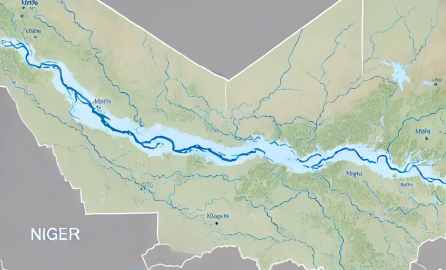The ACP-EU Water Facility is one of the key results of the European Union Water Initiative, an international political initiative in place since 2002. Andre Liebaert, Water Policy Officer at EuropeAid, highlights important themes that affect water management, focusing on the Niger River.
In line with its commitment to the Millennium Development Goals, the EC is committed to improving access to safe and sustainable sources of drinking water and improved sanitation and hygiene practices across the world. One region receiving much attention from the Commission is the African, Caribbean and Pacific, or ACP. As part of the ACP-EU Water Facility, scores of EC-funded projects are currently underway across the ACP countries. Some examples can be found on a special interactive map.
“The EC’s work on the Niger River is mainly funded through the European Water Facility for ACP countries,” said Andre Liebaert, Water Policy Officer at EuropeAid. “With this we support the river basin authorities by doing studies and with institutional support in order to contribute to their action plan. It’s a programme to develop the river resources.”
The Niger River is one of the great rivers of Africa, sweeping in an impressive arch from its source in Guinea in the far west of the continent, to its lush yet chaotic union with the sea at the Niger Delta in Nigeria. On its journey, the Niger River Basin covers a vast area of over 2 million square kilometres reaching into eight countries, many of which rank amongst the poorest nations in the world.
That the Niger River traverses a number of countries makes its management and development more complex affecting peace and security issues and people’s basic access to water.
“In the case of the Niger River, sharing water resources evenly can lead to political challenges and is also linked to most development and cooperation issues. Indeed, water can be used for different purposes: for agriculture, food security, hydroelectric production and also for protection against floods and drought,” Mr Liebaert added.
The news that earlier this year one of the Millennium Development Goals, that of reducing by half the proportion of people without sustainable access to safe drinking water, had been met as of 2010 offers a strong foundation for development practitioners working in many fields.
However, a number of challenges still remain. Globally, there are some 780 million people without access to improved drinking water and sanitation targets remain off track.
Slow improvements in sub-Saharan Africa are dragging down otherwise encouraging global figures. Some 90% of Latin America, the Caribbean, North Africa and large parts of Asia have access to improved water supply sources. But only 61% of the population of sub-Saharan Africa have improved drinking water.
“Access to water and sanitation for the poorest people remains the main challenge,” said Mr Liebaert. “It’s important to remind ourselves that water resources are limited and with the increasing demands of a growing population and economic development we need to re-think the way we manage water in a way that allows us to do 'more with less' in sectors such as agriculture and industry.”
Ivorian photographer Raymond Dakoua recently staged an exhibition of his work at the European Commission offices in Brussels. A number of the ACP-EU Water Facility projects touch the lives of the people he photographed along the banks of the Niger River. For him, understanding the needs of those people and protecting their way of life is vital.
“The Niger River is Mali’s backbone," he said in a recent interview for capacity4dev.eu. "It’s used for all kinds of activity, so it was important for me to talk about it. We should protect the Niger River while finding a solution to make sure that these people can carry on with their activities. What else would they do?”
This collaborative peice was drafted with input from Andre Liebaert and Maddalena Dali with support from the capacity4dev.eu Coordination Team.
Please visit the capacity4dev.eu Public Group on Water and Sanitation

Log in with your EU Login account to post or comment on the platform.